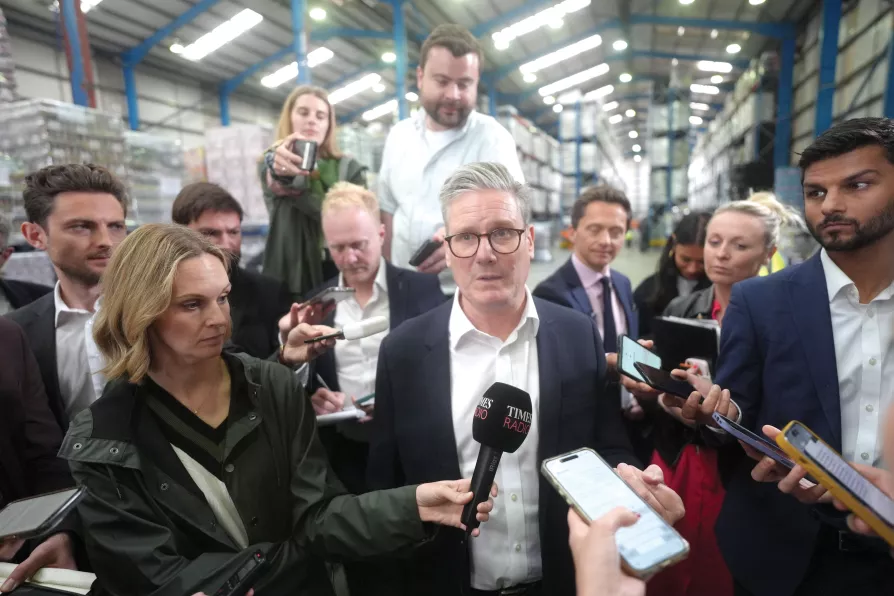Recent research pushes back the date of the earliest cave art by several thousand years. ROX MIDDLETON, LIAM SHAW and MIRIAM GAUNTLETT look into the science applied

 QUESTIONS remain UNANSWERED: Keir Starmer speaks to media during a visit to Global Brands in Claycross, Chesterfield, Derbyshire, on Tuesday
QUESTIONS remain UNANSWERED: Keir Starmer speaks to media during a visit to Global Brands in Claycross, Chesterfield, Derbyshire, on Tuesday
IT BEGAN amid inanity and racism. And it ends amid apathy — and racism.
It began with Rishi Sunak mislaying his umbrella for the big announcement and Keir Starmer trying to end the parliamentary career of one black woman, Diane Abbott, while trying to stop that of another, Faiza Shaheen, from even starting.
It ends with a disengaged electorate disliking the options before it — and with Keir Starmer urging more deportations of Bangladeshis alongside the dominant personality appearing to be Nigel Farage, who sets the agenda without having done a day’s shift as an MP.

In the run-up to the Communist Party congress in November ROB GRIFFITHS outlines a few ideas regarding its participation in the elections of May 2026

Sixty Red-Green seats in a hung parliament could force Labour to choose between the death of centrism or accommodation with the left — but only if enough of us join the Greens by July 31 and support Zack Polanski’s leadership, writes JAMES MEADWAY

From Gaza complicity to welfare cuts chaos, Starmer’s baggage accumulates, and voters will indeed find ‘somewhere else’ to go — to the Greens, nationalists, Lib Dems, Reform UK or a new, working-class left party, writes NICK WRIGHT











